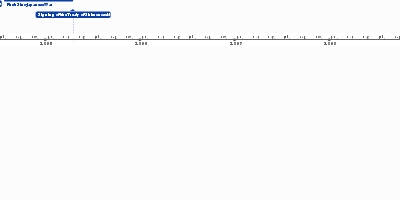Washington Naval Conference (12 nov 1921 anni – 6 feb 1922 anni)
Descrizione:
Following the event of the First World War there was much international support for disarmament and moving towards an era of peace. This sentiment was also present in Japan and among its leading government officials. The Washington Naval Conference provided an opportunity for all nations in the region to come to an agreement in order to avoid the naval arms races seen in the decades prior such as the Anglo-German Naval Arms Race. For Japan it was also an attempt at further cooperation within the region and to backpedal on the Japanese attitude to foreign policy during the duration of the Great War especially in regards to China. The Japanese were represented by Prince Iyesato Tokugawa who was one of the largest supporters of a peaceful and democratic Japan, seeking an alliance with both the British and Americans. Prince Tokugawa’s position however was not universally agreed upon in Japan with much of the Army and Navy disagreeing with the pacifist approach.Japan managed to achieve much of its sought after goal at the conference with the signing of three separate treaties: the Four-Power Treaty, the Five-Power Treaty, and the Nine-Power Treaty. As Japan had wanted, the Four-Power Treaty recognized their gains made in the Treaty of Versaille with Britain, France, the United States, and Japan all recognizing each other's territory. The Five-Power Treaty which also included Italy determined the sizes of each nations navy, limiting the size and number of battleships, with Japan being limited to a 3:5 ratio in regards to the United States and Great Britain. Finally and arguably the most important treaty negotiated was the Nine-Power Treaty which was in regards to the Open-Door Policy in China. The treaty established equal rights for all nine nations in China, with all countries pledging to maintain both equal rights and equal access. Furthermore, the agreement stated that all nations would respect the territorial integrity of China, essentially ensuring that China would not be carved up into colonies like Africa had. This however meant that Japan did not achieve its goal in receiving unilateral control and influence over Manchuria, with the other nations not formally recognizing the Japanese sphere of influence.
The consequences of the treaty were largely beneficial to Japan at that time. They received international recognition of their gains made in the Pacific, China, and Korea and were treated as an equal power to that of the Europeans. Furthermore, the disarmament agreements made allowed Japan to avoid a naval arms race which would have put much strain on the Japanese budget. These policies were also generally popular with the Japanese, however the Army and Navy were dissatisfied with these treaties. They had assumed much power within the government and dictating foreign policy and yet they were now being sidelined by the civilian government despite their victories in the war. This contrast between the military and the civilian government would become the most important dynamics in Japanese politics for the next three decades. However as long as Prince Tokugawa still retained much of his political influence he would generally be able to keep Japan away from the total control of the military.
The Washington Naval Conference and the three treaties that were subsequently signed were generally beneficial to Japan. They achieved most of their objectives in regards to disarmament, territorial recognition, and equal status among the European powers in the region. However, they were unable to receive recognition over their special interest in Manchuria with resistances from particularly the United States. In this regard, Japan would be unable to diplomatically be granted a unilateral position in Manchuria especially while the United States was still determined to maintain the Open-Door Policy in China. Hence, the Washington Naval Conference receives a 7/10.
Aggiunto al nastro di tempo:
Data:
12 nov 1921 anni
6 feb 1922 anni
~ 2 months and 26 days
